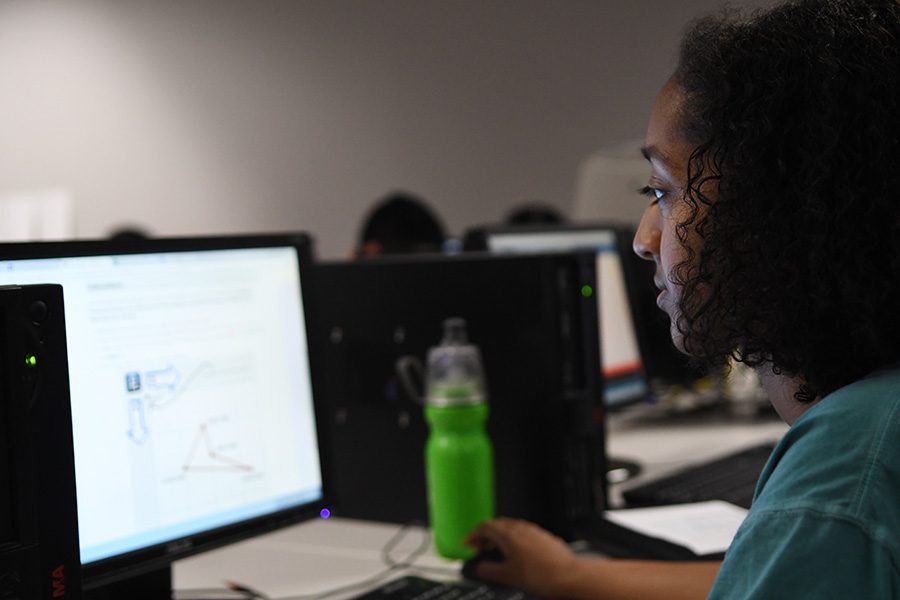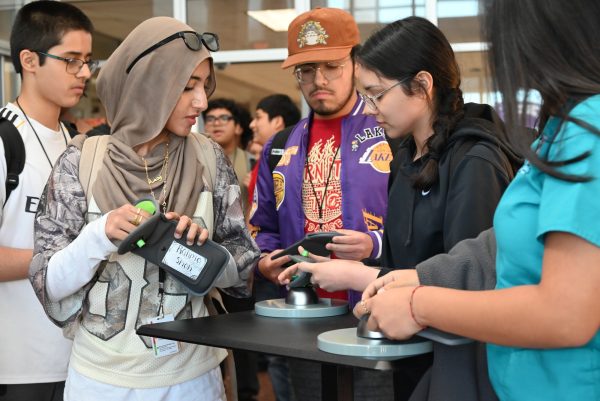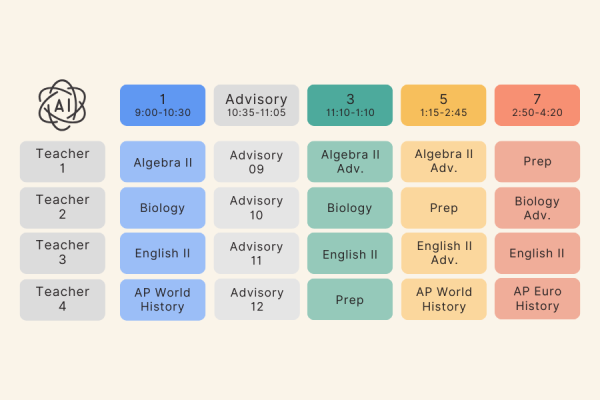FCC Set to Vote on Repeal of Obama-Era Net Neutrality Regulations
An advocate for net neutrality regulations, senior Furtuna Yemane says it can be difficult for older generations to understand how students rely on technology in their daily lives. Talon Photo by Daphne Lynd
With a Republican majority, The Federal Communications Commission (FCC) is set to vote December 14 on a plan to repeal landmark net neutrality rules enacted during the Obama Administration.
The rules prevent broadband companies like AT&T and Verizon from slowing down or blocking certain apps or websites, as well as limiting what content gets to users faster. They also prevent Internet Service Providers (ISPs) from charging users more to view certain content.
“Under my proposal, the federal government will stop micromanaging the internet,” said Trump-appointed FCC Chairman Ajit Pai in a statement about his repeal proposal. “Instead, the FCC would simply require internet service providers to be transparent about their practices so that consumers can buy the service plan that’s best for them.”
Getting rid of the regulations would allow companies like AT&T, Comcast and Verizon to put “Internet Fast-lanes” into place, giving better access to those who are able to pay. Net Neutrality advocates argue that this would cause smaller companies that don’t have the money to pay for fast lanes to suffer.
Advocates for net neutrality say that the ruling could affect academic freedom for students and teachers as well.
If the regulations are lifted, educators who use budget resources to support technology adoption in the classroom, and rely on web tools to aid instruction could be affected. Wikis and collaborative sites that allow for educators to share content could be forced out by larger resource-sharing sites that can afford to pay for faster access.
According to senior Furtuna Yemane, the FCC, and even the school administration, have a hard time relating to young people and understanding how they use the internet.
“In terms of us being adolescents, growing and developing and still trying to find that moral compass, using the internet as a means to explore ourselves is something that the administration can’t really understand seeing as they didn’t grow up in an era where having a computer, or a laptop, or a phone on you would be considered normal,” she said.









